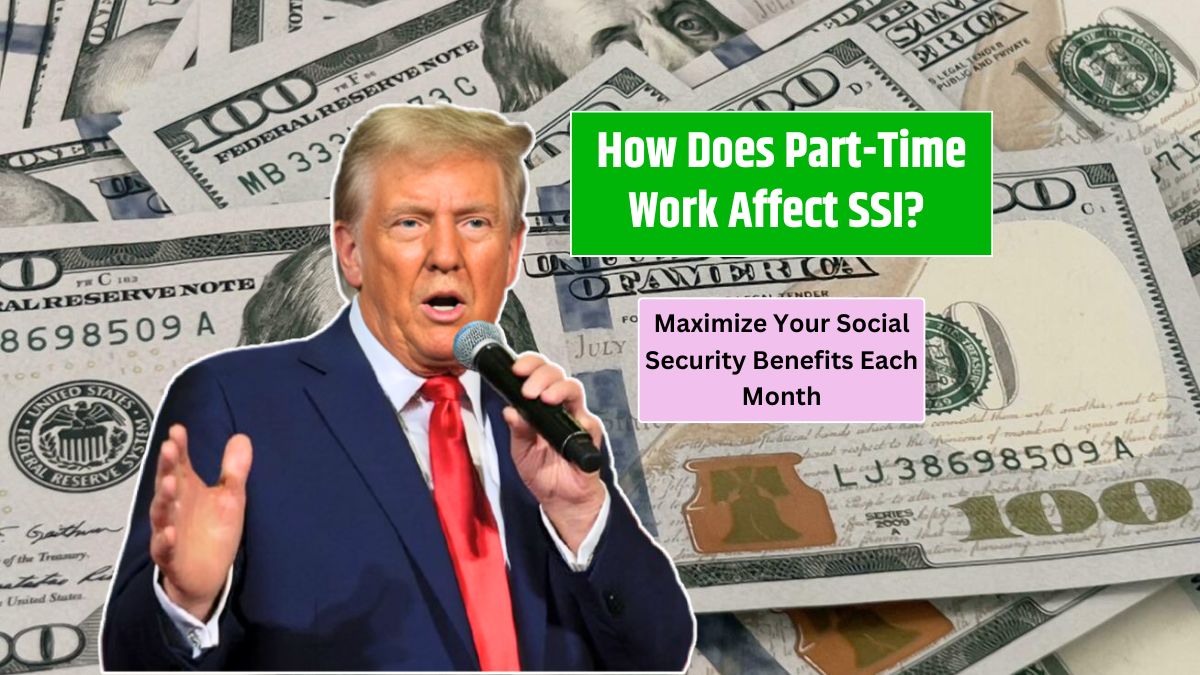Thinking about picking up a part-time job in retirement? Good move! It can boost your income, keep you active, and even add some structure to your day. But before you clock in, it’s smart to know how your new paycheck could affect your Social Security or Supplemental Security Income (SSI) benefits. Spoiler alert: they’re not impacted the same way.
Let’s break down exactly what happens when you earn income while receiving benefits—and how you can keep more of what you’ve earned.
Retirement
If you’re already at full retirement age (FRA)—which is 67 for anyone born in 1960 or later—you’re in the clear. You can work part-time, full-time, or even launch a side hustle, and it won’t reduce your monthly Social Security retirement payments.
So go ahead and chase that dream job or pad your travel fund. Once you’ve hit that golden FRA milestone, your benefits are locked in regardless of how much you rake in from work.
Before FRA
Not quite 67 yet? That’s where it gets a little trickier.
If you’re under full retirement age and working in 2025, the Social Security Administration (SSA) will temporarily reduce your benefits based on how much you earn. Here’s how it works:
| Age & Earnings Situation | Income Limit | Benefit Reduction |
|---|---|---|
| Under FRA (all of 2025) | $23,400 | $1 withheld for every $2 earned above limit |
| Reaching FRA in 2025 (before your FRA month) | $62,160 | $1 withheld for every $3 earned above limit |
So, if you make $30,000 in 2025 and haven’t hit FRA yet, your benefits could be reduced. The good news? These cuts are only temporary. Once you reach FRA, the SSA recalculates your benefit and gives you credit for the months your checks were reduced or withheld.
SSI
Now let’s talk about Supplemental Security Income (SSI)—a whole different ballgame. Unlike Social Security retirement benefits, SSI is needs-based, meaning it’s reserved for individuals with very limited income and resources.
If you’re receiving SSI, even small earnings from part-time work can affect how much you get. And unlike the gradual reduction with Social Security, SSI benefits can drop more drastically depending on what you earn.
Here’s the kicker: not all income is treated equally. Some types of income are partially excluded from the SSI calculation, and some states offer additional benefits or exemptions. That said, a few extra hours of work can still shrink your SSI payment fast—so it’s best to keep close tabs on what you’re making.
Strategy
Thinking long-term? Here are a few smart ways to balance work and benefits:
- Delay claiming Social Security until at least your FRA, or even longer, to get a larger monthly benefit.
- Track your earnings if you’re under FRA and working—it helps you avoid surprise benefit cuts.
- Report all income changes to the SSA as soon as possible to avoid overpayments.
- Talk to an expert—a financial advisor or Social Security counselor can help you make the most of your situation.
Bottom line? Working in retirement doesn’t have to mess with your benefits—if you know the rules. Whether you’re relying on Social Security or SSI, staying informed is your best bet for keeping your income (and your stress levels) in check.
FAQs
Does working affect Social Security?
Only if you’re under full retirement age and earning over the limit.
What is the FRA in 2025?
For anyone born in 1960 or later, FRA is age 67.
Can I work and get SSI?
Yes, but even small earnings can reduce your SSI benefit.
Are Social Security reductions permanent?
No, benefits are recalculated at FRA to account for withheld months.
How can I avoid benefit cuts?
Delay benefits, track income, and notify SSA of any job changes.


















